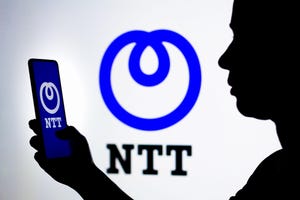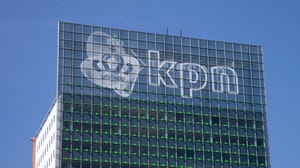Germany eyes measures aiding 1&1 in latest spectrum extension consultation
The German regulator has launched a consultation on its new proposed extension of spectrum rights in the 800MHz, 1,800MHz and 2,600MHz bands, specifying measures to ensure that 1&1 gets access.

Germany's networks regulator Bundesnetzagentur (BNetzA) has opened a consultation on its new proposal to extend spectrum allocations in the 800MHz, 1,800MHz and 2,600MHz bands. Under the proposed document, established operators would have to give newcomer 1&1 some access to these bands as it currently holds no usage rights. The consultation document is open for comments until July 8.
The new consultation, which comes on the heels of another that concluded in 2023, maintains that current spectrum allocations should be extended for another five years past their original expiration set for the end of 2025. BNetzA says the goal is to bring the expiry of the usage rights closer to those in other bands, which are set to expire in 2033, making it possible to award more spectrum in one go at a later stage. When allocating all of these in the future, the regulator could set new targets, like indoor coverage, and might include what BNetzA calls innovative instruments, including a negative auction.
What appears to be new in the consultation document are the provisions regarding 1&1. Germany's smallest and newest fourth mobile operator has yet to complete its network rollout and was not part of the allocation process for these bands.
The draft document stipulates that the three incumbent operators (Deutsche Telekom, O2 Telefónica and Vodafone Germany) would have an obligation to negotiate with newcomer 1&1 about a national roaming agreement. If 1&1 were to have no such agreement as of January 1, 2026, BNetzA may intervene and order one.
As far as Light Reading could establish with the help of Google Translate, the document also specifies that the incumbent operators would have to offer 1&1 cooperative, shared use of their frequencies, corresponding to 2x5 MHz (paired) in the 800MHz band. Moreover, O2 Telefónica would be required to continue the existing lease of 2 x 10 MHz (paired) to 1&1 in the 2,600MHz band – currently due to expire in 2025 – for the whole five-year extension period.
Spectrum drama
The proposed extension would also stipulate new coverage obligations for the three operators concerned, focusing mainly on improving their networks in rural areas and along roads. For example, they would have to offer 50 Mbit/s on 99.5% of the German territory from 2030, and 100 Mbit/s for 99% of households in rural communities in each of Germany's federal states from 2029.
While the three big operators would likely be happy to avoid a potentially costly new auction, for 1&1 this would mean five more years before it can secure its own spectrum licenses.
An Aetha report published in January (before the latest consultation was launched), which was commissioned by 1&1, argued that the extension "would unduly advantage the existing MNOs." Nevertheless, in a statement on Monday, 1&1 said it is open to the proposed cooperative solution.
Meanwhile, there has been some acrimony between 1&1 and the established operators. In April, Bloomberg reported that Deutsche Telekom CEO Tim Höttges called 1&1's network "just one big white spot" during the firm's annual general meeting. And he was equally scathing in the publicly available speech, in which he argued that 1&1 has left its spectrum portfolio largely untapped.
For its part, 1&1 has blamed Vodafone for obstructing its network rollout, after entering in a mast-sharing agreement with the Vodafone-controlled Vantage Towers in 2021.
This came after 1&1 failed to meet its obligation of deploying 1,000 5G basestations by the end of 2022, with only five up and running at that time. As Light Reading wrote previously, while the operator claimed to have installed 1,062 antennas by the end of 2023, only 243 sites were equipped with basestations.
Nevertheless, 1&1 signed a preliminary national roaming agreement with Vodafone in August.
Read more about:
EuropeAbout the Author(s)
You May Also Like














